World Calling Ken Clarke: Prison Reduces Crime Here Too!
Kenneth Clarke, Secretary of State for Justice, has been claiming that crime fell in all developed countries in the 1990s and that it was not the result of increasing the prison population in the UK or elsewhere. Most recently he repeated the claim on Newsnight on Tuesday 30th November. When former Chief Constable, Tim Brain, argued that crime fell as a consequence of doubling the prison population from the mid-1990s onwards, Ken Clarke replied:
‘I don’t think it was caused by the prison population doubling; crime fell throughout the Western world over the years you were talking about including in places like Canada, the Netherlands and New York.’
Ken Clarke is mistaken. As the following charts show:
- Crime rates did not fall consistently across the Western world.
- Where crime rates did fall, they were usually associated with higher incarceration rates just as was observed in England and Wales.
- By contrast, significant reductions in prison populations tend to be associated with spikes in crime rates indicating that incarceration plays a role in preventing some crimes that would otherwise take place.
All statistics are taken from Eurostat, the European Union’s statistics bureau. They compare the total number of crimes recorded by police with the number of individuals incarcerated for all years in which both figures are available and comparable. Charts for all countries can be found here.
The negative observed correlations between crime rates and prison populations are far from universal. Sometimes incarceration rates simply rise as a reaction to increases in crime (see Switzerland as a highly probable example of that relationship). However, we believe there are enough incidences of crime dropping in response to an increase in imprisonment to indicate that incarceration is one factor, amongst many others, that contributes to reducing crime.
Canada, the Netherlands and New York
Although the number of recorded crimes in Canada decreased throughout the 1990s, it increased dramatically from 2000 onwards as the prison population continued to fall. In the 1990s, the crime rate began decreasing before the prison population was reduced.
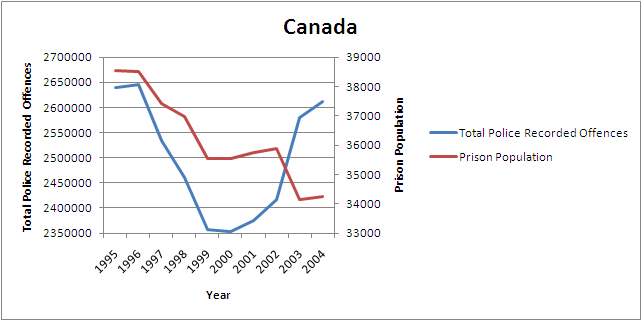
This contrasts with the USA where incarceration rates have consistently increased. There, crime has continued to decrease. The economist Steven Levitt argues in an evidence review that incarceration made a significant contribution to the national decline in crime rates. In New York, specifically, he attributes the crime drop to an increase in abortion rates and a significant increase in the number of police officers.
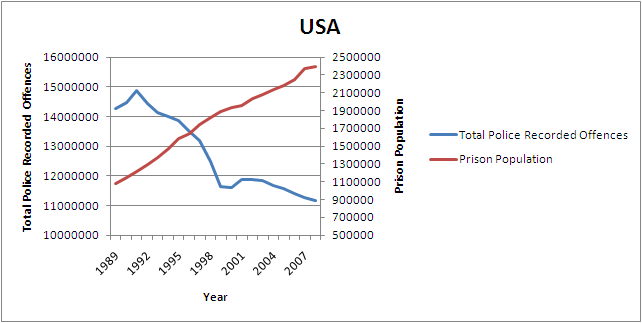
In the Netherlands, there is not a clear trend towards more or less crime but the prison population has increased significantly:
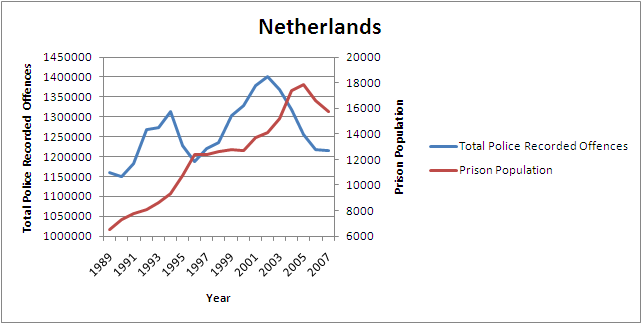
The rest of the UK
Scotland and Northern Ireland provide a clear observed correlation between an increase in incarceration rates and a reduction in crime. Scotland increased its prison population and saw a significant drop in recorded crime. Northern Ireland, by contrast, reduced its prison population and saw a dramatic increase in recorded crime.
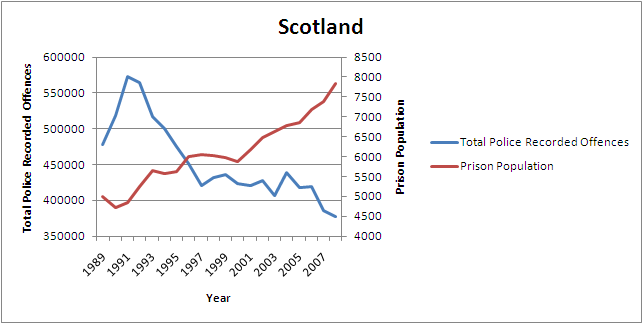
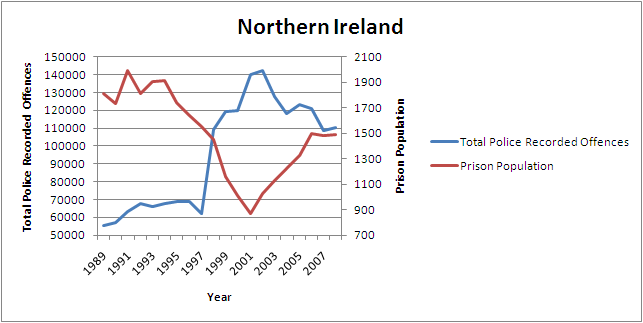
Western Europe
Britain’s neighbours have not experienced consistently lower crime rates. However, dips in recorded crime tend to be associated with increases in prison populations. By contrast, spikes in crime tend to be associated with sudden decreases in prison populations. A paradigm example of this is Italy’s record number of recorded crimes in 2007. It followed Italy’s mass pardon of prisoners in 2006 which is documented in detail in a recent research paper by Alessandro Barbarino and Giovanni Mastrobuoni.
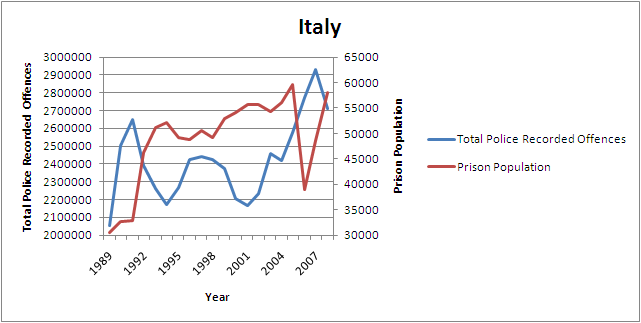
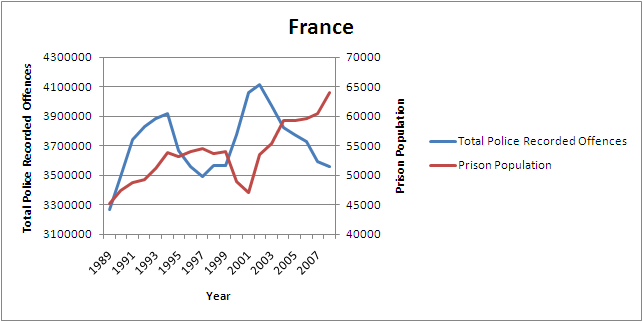
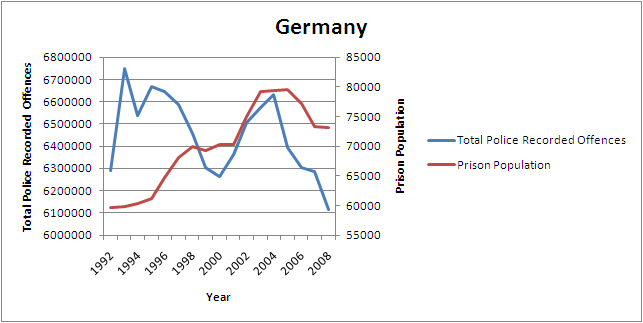
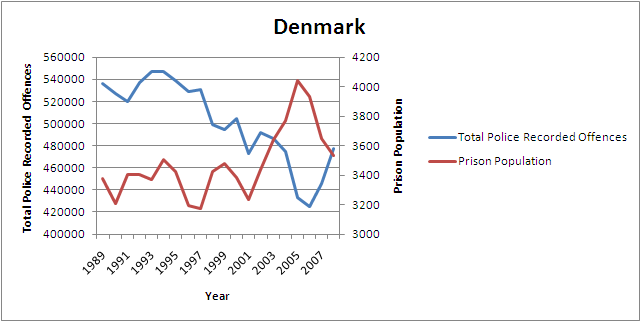
See similar charts for all countries with Eurostat figures here.
For more information contact:
David Green on 020 7799 6677
Nick Cowen on: 020 7799 6677.
Notes for Editors
i. This briefing was prepared by David Green, Nick Cowen and Carolina Bracken. It can also be downloaded here.
ii. Civitas is an independent social policy think tank. It has no links to any political party and its research programme receives no state funding.
